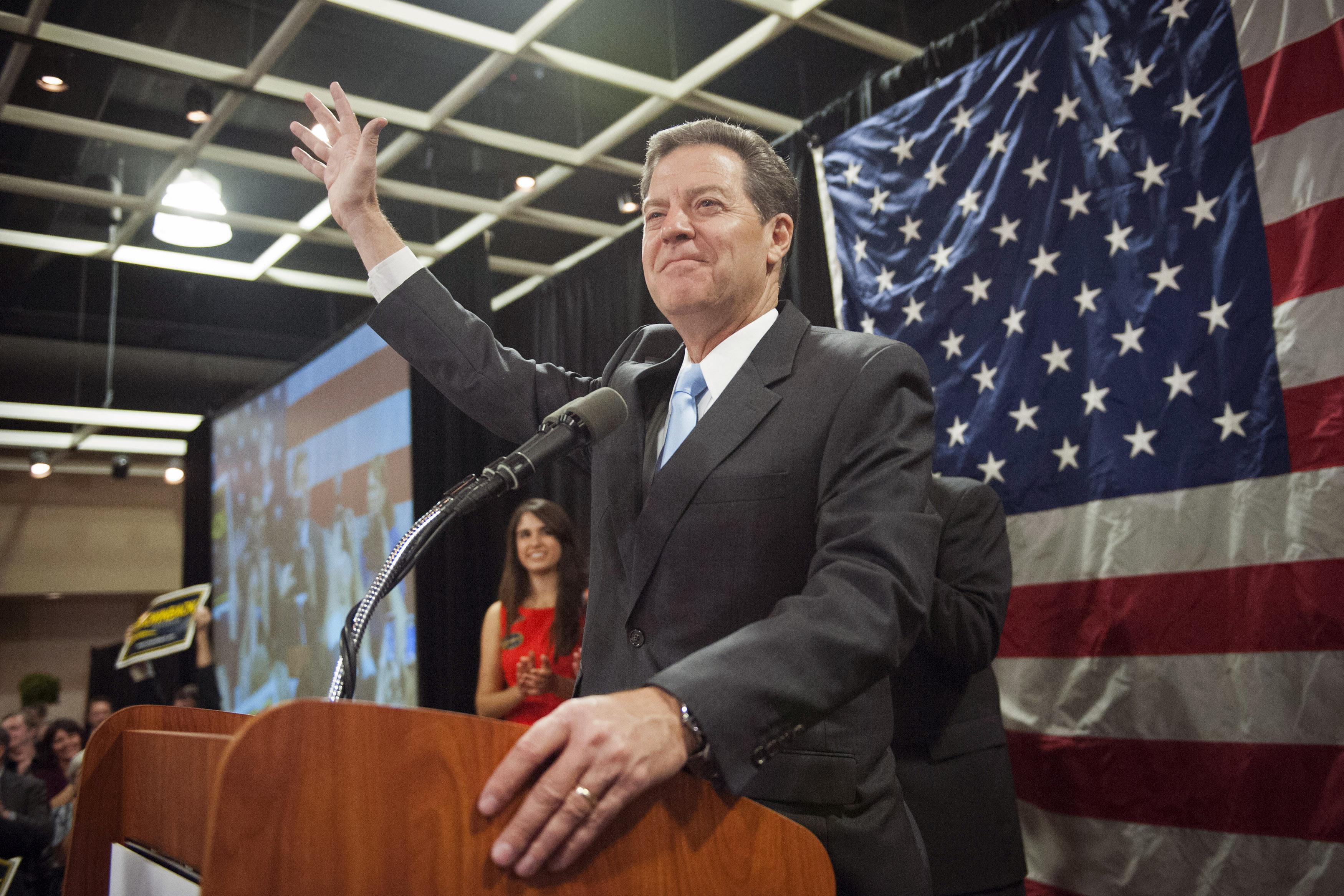What’s the matter with Kansas now? Oh, you know, just a small budget crisis brought on by its Republican governor’s radical tax cuts. This week, the state discovered it would have to cut $279 million by June in order to balance its books, then slash another $436 million during the following fiscal year. For Kansas, this is a hefty amount of money. The entire state budget legislators approved in May was just $6.3 billion.
Back in 2012, the state’s recently re-elected Republican governor, Sam Brownback, turned Kansas into a petri dish for conservative fiscal policy after he signed into law a massive tax cut that dropped rates for top earners and eliminated taxes entirely for some businesses. Brownback and conservative tax guru Arthur Laffer promised that the cuts would bring “enormous prosperity” to the state by making it more competitive. But jobs growth has lagged in Kansas, and this summer, the state government found itself nearly $300 million short on revenue. To cope, it began burning through its reserve funds, and Moody’s in turn downgraded the state’s credit rating.
Brownback’s administration tried to blame the shortfall on tax-shifting due to the 2012 fiscal cliff, but that excuse—which was never really credible—has been pretty much rendered moot by the new numbers. The fiscal cliff can’t explain budget problems all the way out in 2016. If there was any doubt at all, the state’s nonpartisan Legislative Research Department confirms that the deficit “is primarily being driven by the state’s income tax cuts,” according to the Wichita Eagle.
And about the “enormous prosperity” just waiting around the corner? Via Econbrowser’s Menzie Chinn, here’s a chart of Kansas’ economic outlook, based on an index of various indicators. Notice it’s not just running below the national average. It’s running below high-tax California, too.
